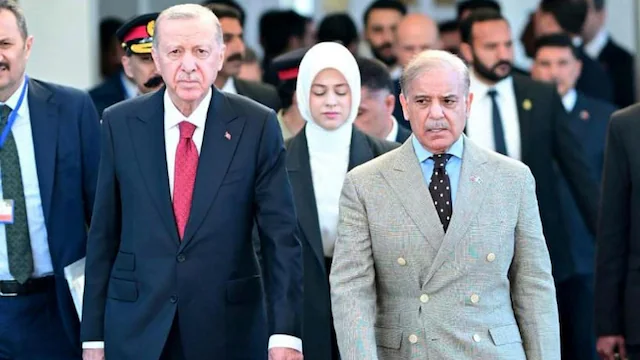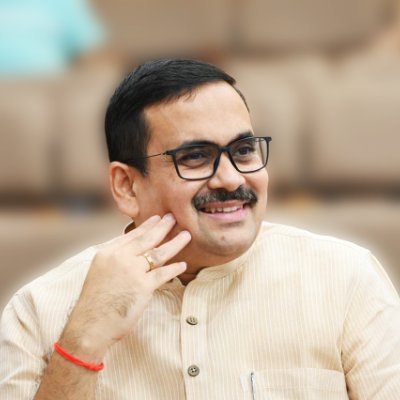The pampering and patronising of a rogue state like Pakistan seems to be ingrained in Erdogan’s foreign policy
Countries that have come out in support of Pakistan by opposing India’s right to retaliate through Operation Sindoor themselves possess a dubious record of democracy, human rights and constitutional governance. Azerbaijan has a preposterous record of cracking down on journalists, academics, intellectuals, students and the media. There is an obvious compatibility and consonance in the world view of the Azerbaijan dispensation and the Pakistani establishment. Gross human rights abuse, dumping the democratic process and running the country as a police state is increasingly becoming the hallmark of Azerbaijan.
Turkey’s record of siding with Pakistan has been evident over the years and has not come as a surprise to anyone in India. Turkey itself is enmeshed in a prolonged struggle to establish its political and cultural identity. Its record of handling internal challenges is similar to Pakistan’s, which is disastrous and far-removed from any strands of democratic conduct. President Erdogan, pursuing a vain dream of resurrecting the Turkish-Ottoman empire, believes that Pakistan, with its hollow ambitions of becoming the rallying point of a global radical ummah, will partner him in realising that pipe dream.
It is interesting to recall in this context that Pakistan’s founding ideologues and proponents, however, spoke of creating a Pakistan that would surpass Turkey. In his persuasively argued and richly documented study “Creating a New Medina”, historian Venkat Dhulipala writes, that as “Pakistan became the focus of raucous debates in the public sphere, Muslim League propagandists were not just keen to defend its economic, political and military viability, but to portray Pakistan as potentially a far more powerful state in the world replacing Turkey.”
The Muslim League’s ideologues and clergy groups emphasised above all, “Pakistan’s strength as a potential ‘first class power’ surpassing Turkey, thus enabling it to extend its protective umbrella not only over Muslims in Hindu India, but over the Islamic world at large…” It was Pakistan’s Shaykh-ul-Islam Maulana Shabbir Ahmed Usmani, the first one to hoist Pakistan’s flag in Lahore on 14 August 1947, who had prophesised, writes Dhulipala, “that just as Medina had provided the basis for Islam’s victorious spread in Arabia and the wide world beyond, Pakistan would become the instrument of the ummah’s unification and propel its triumphal rise on the global stage as a great power…”
Who knows, someday, a Pakistan, bolstered and fattened by Turkey’s largesse, will revert back to its original hope of overtaking and surpassing Turkey as the head of the Islamic world and an heir to the long-lost Ottoman Empire, leaving patron Erdogan high and dry. Someday the two proponents of these vain dreams may perhaps clash unless Pakistan’s client state mentality and propensity keeps its global ambitions under permanent leash.
Erdogan has jailed his political opponents, arrested thousands of opposition political activists and leaders as recently as in March 2025, throwing them in prison as he has done with the popular Mayor Imamoglu and leader of the principal opposition party the Republican People’s Party. Erdogan has silenced the political opposition in jail by removing their right to communicate with the people, blocking their social media handles and accounts.
India was the first responder after a devastating earthquake hit Turkey and Syria in early February 2023. India launched Operation Dost, deploying specially trained NDRF teams, opening field hospitals and supplying over 135 tons of relief material to Turkey, in an unprecedented relief and rescue operation. Operation Dost saw specialised Indian teams work round the clock, with medical equipment and a large quantity of medical supplies. But that did not make Turkey pause, not that India expected any reciprocity or quid-pro-quo.
PM Modi’s vision of India as “Visvamitra” is based on non-reciprocity. It is a philosophy that is based on India’s innate civilisational quest for weaving relations inspired by Dharma. Speaking of Operation Dost, PM Modi had said that “India has nurtured its selflessness along with its self-sufficiency” and that wherever there is a disaster in the world India “is found ready as a first responder.”
He had also highlighted the “importance of quick response time during a natural calamity” and spoke of how “the speedy response of the NDRF team in Turkey drew the attention of the entire world.” Like a number of such model relief and rescue operations undertaken in the last one decade, Operation Dost too lived up to PM Modi’s vision of India as “Visvamitra” – a friend to the world and especially to those in crisis.
But Erdogan’s Turkey had other priorities. Obsessed with Kashmir, it saw Pakistan as an ally in fulfilling its dream of leading large swathes of the Islamic world. It has consistently supplied Pakistan with arms and by 2025, it has been well proved that Erdogan has supplied a major chunk of arms to the Pakistani military establishment. Even after the Pakistan backed terror attack in Pahalgam, Turkey persisted with its arms supply to Pakistan.
The pampering and patronising of a rogue state like Pakistan seems to be ingrained in Erdogan’s foreign policy. This also proves that Erdogan believes in terror as a legitimate weapon of hegemony. Once termed as the “Sick Man of Europe”, Erdogan is certainly turning Turkey’s mind sick with his policies and his sympathy for terror and its “mother-ship”, Pakistan.
Calls for boycotting Azerbaijan and Turkey, calls for desisting from visiting these countries that are increasingly being heard across India are therefore legitimate expressions of indignance. These voices will intensify in the days to come. The India of Operation Sindoor is no pushover and cannot be cowed into silence.
(The views expressed are the author's own and do not necessarily reflect the position of the organisation)


